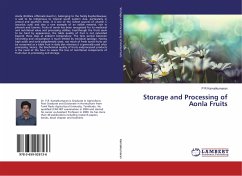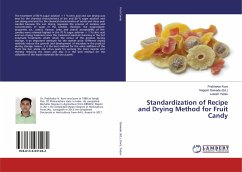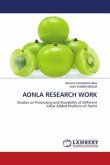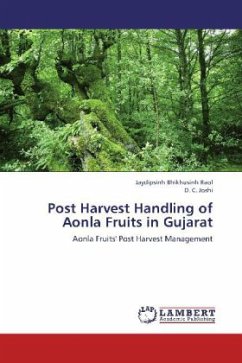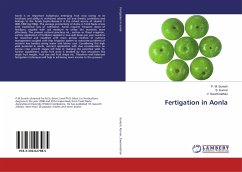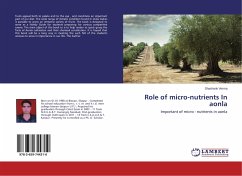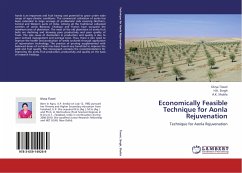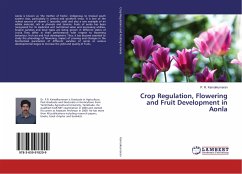Aonla (Emblica officinalis Gaertn.), belonging to the family Euphorbiaceae, is said to be indigenous to tropical south eastern Asia, particularly in central and southern India. It is one of the richest sources of vitamin C (ascorbic acid) and also a rare example of an edible material, rich in phenols and tannins. Fruits of aonla has been recognized for its medicinal and nutritional value and processing utilities. Eventhough the fruits seem to be hard by appearance, the table quality of fruit is not extended beyond three days at ambient temperature. The time period between harvesting and consumption is much limited by microbial spoilage. Having high acidic and acrid polyphenolic taste, not much of fresh aonla fruits can be consumed as a table fruit in daily diet whereas it is generally used after processing. Hence, the biochemical quality of fruits andprocessed products is the need of the hour to assess the loss of nutritional components of fruits due to processing and storage.
Bitte wählen Sie Ihr Anliegen aus.
Rechnungen
Retourenschein anfordern
Bestellstatus
Storno

